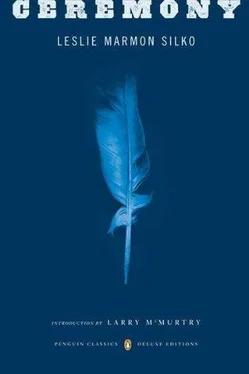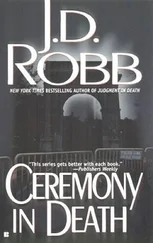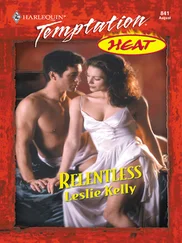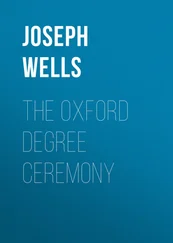They walked back together. In the distance he could see the spotted cattle scattered across the valley between the mesas; the yellow bull their cousin Romero lent them was grazing a distance from the cows, as if he still feared their horns. Their hides reflected the color of the sunset like clouds on the west horizon.
“How did you know I’d be here?” he said, still watching the cattle.
She laughed and shook her head. “The way you talk!” she said. “I was here almost a week before you came. How did you know that I’d be here? Tell me that first.”
He went with her to learn about the roots and plants she had gathered. When she found a place she got comfortable, spreading her blue shawl on the ground after she had cleared the area of pebbles and little sticks and made sure no ants were disturbed. She sat flat on the ground and bent over close to the plants, examining them for a long time, from the petals, sprinkled with pollen, down the stem to each leaf, and finally to the base, where she carefully dug the sand away from the roots.
“This one contains the color of the sky after a summer rainstorm. I’ll take it from here and plant it in another place, a canyon where it hasn’t rained for a while.”
While she gathered plants, he watched the cattle grazing in the tall yellow rice grass that grew above the arroyo just to the edge of the juniper trees. They had stopped moving south. They had worked the direction out of their systems and had settled into the place. Josiah would have said that it was because they were so smart, and they could tell a good place when they found it: springs and good grazing. And what about Romero’s yellow bull, he could hear Josiah say, winking when he said that; but the speckled cows had not seen the yellow bull that way, at least not in the beginning.
Romero’s bull was short-legged and broad, and his color was yellow sandrock broken loose from a cliff. He had small yellow eyes and a hump in his neck. Romero found him standing on three legs at the Prewitt rodeo grounds the day after a rodeo. The left front leg was hanging at a broken angle, and none of the white people at Prewitt wanted to bother with the bull because the meat would be tough. Romero told them he would haul the bull away for free.
Romero said he didn’t know how dangerous the bull might be after being a rodeo bull. But the horns were sawed off blunt, and he had only three good legs, so Romero took him home and doctored him. He said he worked on the animal in the loading chute, but the bull stood still and never fought while Romero worked on him. Romero busted up an orange crate and used the wooden slats for a splint that he tied up with strips of old bed sheet. It was a perfect job, Romero said, only the damn bull had rubbed the leg against the corral posts and loosened the splint too soon. That’s why the leg healed a little crooked. If he’d just left it alone, it would have been almost as good as new, Romero said.
The speckled cows had watched the bull step out of the horse trailer, and when he sniffed them out and started to approach them, they crowded together, shaking their heads and the curved horns, threatening with wild eyes. They had moved suddenly, like a whirlwind, dust and sand flying up from their hooves as they chased him back toward the truck and horse trailer. But there he spun around suddenly to face them, and they scattered. He watched them disappear into the junipers of the wide canyon to the west, and then he switched his stubby tail around his haunches a few times, and trotted after them.
The yellow bull grazed in open view, but the speckled cows stayed in the juniper, listening like deer to Tayo’s approach, their spotted hides blending into the sandy talus of the big mesa. Gradually they appeared, cautiously joining the yellow bull. Tayo sat motionless with his back against the small cottonwood tree growing in the wash. The cows kept their bodies between him and the new calves, but occasionally a calf bolted away, bucking and leaping in a wide arc, returning finally to its mother when it tired of playing. Tayo’s heart beat fast; he could see Josiah’s vision emerging, he could see the story taking form in bone and muscle.
“There’s only one more I need,” she said, pointing her chin in the direction of the gunny sacks full of roots and plants. “It won’t be ready for a while, but I’ll show you which one it is, and maybe you can gather it for me, in case I have to go before it’s ready.”
Tayo had been drowsing in the sun with his back against the cliff rock; he sat up stiffly and looked at her.
“In case of what?” His heartbeat was fast and unsteady. Her eyes had distance in them; when he looked at her he saw miles spreading into canyons and hills. She knelt down beside him, and he saw tears.
“Out there,” she whispered, “things are always moving, always shifting. I hear them sometimes at night.”
They walked west across the long mesa where the old ones had piled stones in circles, high above the flat sandstone mesa top far above the canyons and springs.
“This one,” she said, pointing at a tall dark green plant with round pointed leaves, deep veined like fossil shells. The flat seed pods were still thick and green, but later, in the fall, the skin would dry thin, and cold winds would strip away the hull to the last translucent membrane, holding the dark eyes of the seed inside it.
“What color of sky is inside this one?”
She shook her head. “This isn’t for color,” she said. “It’s for light. The light of the stars, and the moon penetrating the night.” It was too dense and green to be taken then; if the stem were broken then, before the final season, its wet flowing vitality would be lost in a single breath.
“I’ll remember it,” he said. “I’ll gather it for you if you’re not here.”
Their days together had a gravity emanating from the mesas and arroyos, and it replaced the rhythm that had been interrupted so long ago; now the old memories were less than the constriction of a single throat muscle. She was with him again, a heartbeat unbroken where time subsided into dawn, and the sunset gave way to the stars, wheeling across the night. The breaking and crushing were gone, and the love pushed inside his chest, and when he cried now, it was because she loved him so much.
Robert came at the end of the summer. He had come only once before, when he took the goat and the cat back to Laguna and stopped to see if Tayo needed anything. Robert had not asked any questions then, about why Tayo was sleeping out there when he could have stayed over at the ranch. This time Tayo could see something different, although they walked up the valley together as they had when Robert came before, looking at the spotted cattle, examining the calves. When they got back to the place Robert parked the truck, Robert looked uneasy.
“What should I tell them at Laguna?” Robert was looking up at the thunderclouds rolling in from the Black Mountains in the south. The roads out that way had been muddy all summer, and he didn’t want to get stuck that day. Tayo shook his head. A hawk circled high above them, gliding on air currents from the approaching storm. Thunder echoed against the cliffs, but Robert did not go. He took his hat off and wiped his forehead on his shirt sleeve.
“They want you to come home. They are worried about you. They think you might need the doctors again.”
“Oh.” His stomach fell into a crevice. His hands felt cold.
“Old man Ku’oosh and some of the others are wondering too why you haven’t come. They thought maybe there might be something you should tell them.” The words caught in his throat, and he coughed. “And Emo has been saying things about you. He’s been talking about how you went crazy and are alone out here. He talks bullshit about caves and animals.”
Читать дальше












